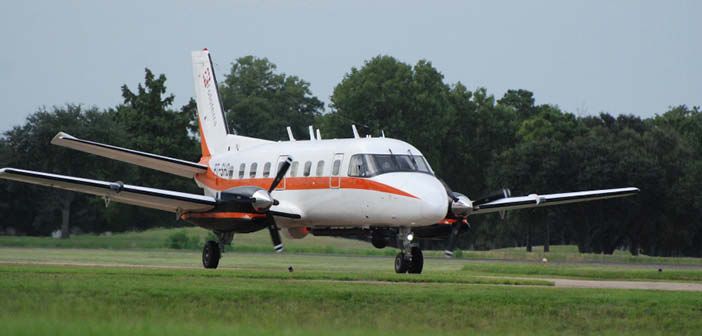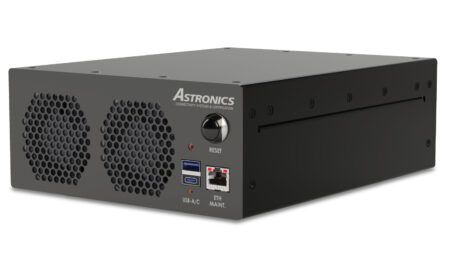A Satcom Direct Plane Simple antenna has been chosen for a Brazilian-registered Embraer EMB-110 – the first such installation for a special-mission aircraft.
The Plane Simple Ku-band variant is being installed on the aircraft for operator Fototerra, a company specialising in airborne geographic data capture. This also represents the first Plane Simple Ku-band installation for the Latin America region.
To complete the installation and generate the relevant STCs, SD is collaborating with Pro Aero, a dedicated aviation service and consulting company; and Brazilian aeronautical certification company and SD reseller, Jazz Engenharia Aeronáutica. Jazz is completing the installation and liaising with the National Civil Aviation Agency of Brazil (ANAC), to generate the STCs. SD anticipates installation will commence in late August 2022, with redelivery expected towards the end of September 2022, and crew training to follow.
The Plane Simple Ku-band antenna will be located on top of the twin-turboprop’s fuselage, in the centre of the aircraft to heighten operating efficiencies.
“The advanced antenna system will replace current micro-wave technology which Fototerra uses to monitor the maritime coast on behalf of the oil and gas industry,” said Felipe Nardi, Jazz sales director. “The existing technology requires Fototerra to stay near the coastline to communicate images effectively. Once we’ve installed the terminal, this limitation will be removed. We are excited to be the first company to undertake this type of installation on behalf of SD. We know it will streamline Fototerra operations and showcase the opportunities for similar aircraft types.”
“Our aim with SD Plane Simple is to increase access to consistent, reliable, global connectivity solutions in a simplified format at cost-effective rates,” said Ewerton Libanio, managing director for Satcom Direct Brazil. “This installation is a perfect example of how by collaborating with like-minded companies Pro Aero and Jazz, we can break into new territory regarding aircraft data transmission. Jazz has completed more than 800 projects and modified more than 1,000 aircraft since launch in 2009, and Pro Aero specialises in delivering solutions to aviation stakeholders that improve efficiency and operations. This collective knowledge and extensive experience position them as the perfect partners for us to work with for this, and future projects.”
Fototerra plans to harness the technology to transmit data-heavy files generated during flight. “Reliable broadband data transmission will improve efficiencies, increase productivity and enhance the services we provide to our customers,” said Gulherme Pinho, CEO of Fototerra. “We have been waiting for this capability for a long time and are enthusiastic about completing missions with the technology in place.”
With the Plane Simple terminal, powered by the Intelsat FlexExec network, high-resolution images, hyperspectral images, lidar data, radar data, and infrared, ultraviolet, thermal, and fluorescence techniques will transmit, in real time, directly to Fototerra servers, customers and authorities as needed. Fototerra is optimising the complete Satcom Direct ecosystem of products and services; sourcing its connectivity solutions and support from a single supplier.
Designed exclusively for business aviation, the Plane Simple terminal and Intelsat FlexExec network require two line replaceable units – the SD Modem Unit and the SD Plane Simple Antenna – to activate data transmission. Libanio anticipates that the Plane Simple antenna series will enhance the customer connectivity experience across the region: “Owners of mid- to large-size cabin aircraft want to emulate the on-the-ground connectivity experience in the air and we are already receiving significant interest. Our special-mission customers in the environmental, surveillance and military sectors also see the potential for improved connectivity, and we’ll be pleased to highlight all we offer at this year’s LABACE.”
Satcom Direct will showcase the Plane Simple antenna series during LABACE 2022, highlighting the Ku-band, Ka-band and L-band variants and capabilities.





